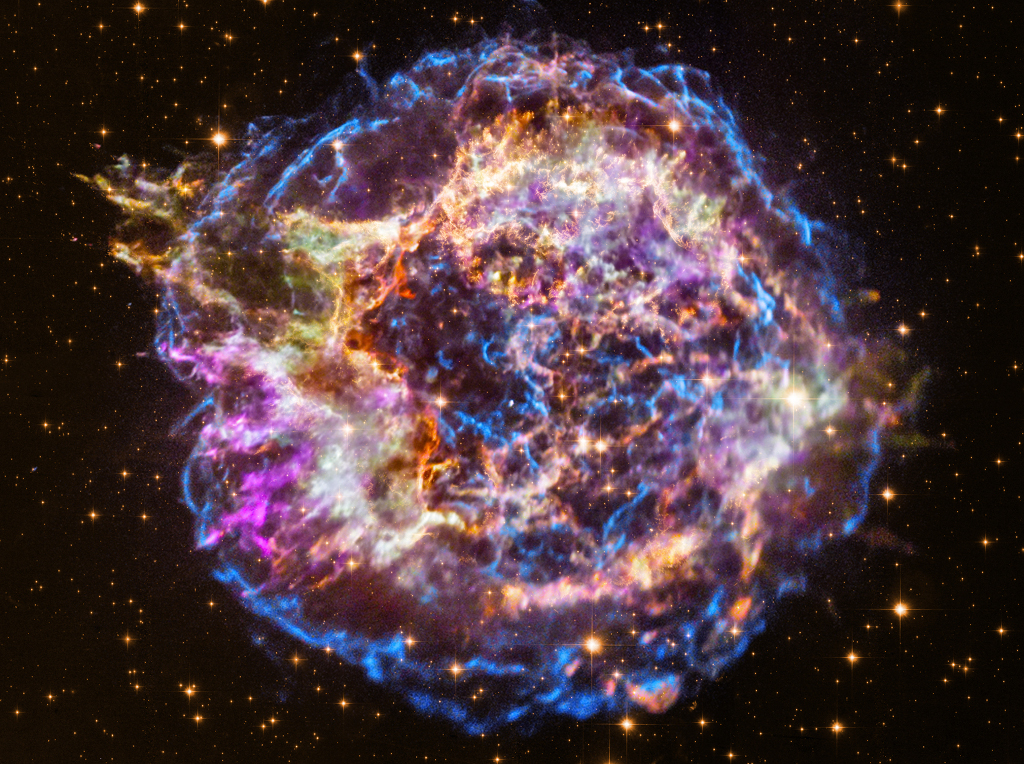안녕하세요 오늘은 NASA에서 어떤 우주의 모습을 비춰줄까요?
먼저 사진부터 감상하시죠!

이 사진의 제목은 Recycling Cassiopeia A 입니다. NASA에서 공식적으로 제공한 설명을 보시죠.
Massive stars in our Milky Way Galaxy live spectacular lives. Collapsing from vast cosmic clouds, their nuclear furnaces ignite and create heavy elements in their cores. After a few million years, the enriched material is blasted back into interstellar space where star formation can begin anew. The expanding debris cloud known as Cassiopeia A is an example of this final phase of the stellar life cycle. Light from the explosion which created this supernova remnant would have been first seen in planet Earth's sky about 350 years ago, although it took that light about 11,000 years to reach us. This false-color image, composed of X-ray and optical image data from the Chandra X-ray Observatory and Hubble Space Telescope, shows the still hot filaments and knots in the remnant. It spans about 30 light-years at the estimated distance of Cassiopeia A. High-energy X-ray emission from specific elements has been color coded, silicon in red, sulfur in yellow, calcium in green and iron in purple, to help astronomers explore the recycling of our galaxy's star stuff. Still expanding, the outer blast wave is seen in blue hues. The bright speck near the center is a neutron star, the incredibly dense, collapsed remains of the massive stellar core.
오늘도 광활한 우주 앞에 인간이 얼마나 작은 존재인지 깨닫게 되네요.
저는 내일도 더 좋은 사진과 함께 돌아오겠습니다, 행복한 지구여행 되세요!
'생활정보' 카테고리의 다른 글
| NASA 오늘의 사진 (2023-06-03) (0) | 2023.06.03 |
|---|---|
| NASA 오늘의 사진 (2023-06-02) (0) | 2023.06.02 |
| NASA 오늘의 사진 (2023-05-31) (0) | 2023.05.31 |
| NASA 오늘의 사진 (2023-05-30) (0) | 2023.05.30 |
| NASA 오늘의 사진 (2023-05-29) (0) | 2023.05.29 |



